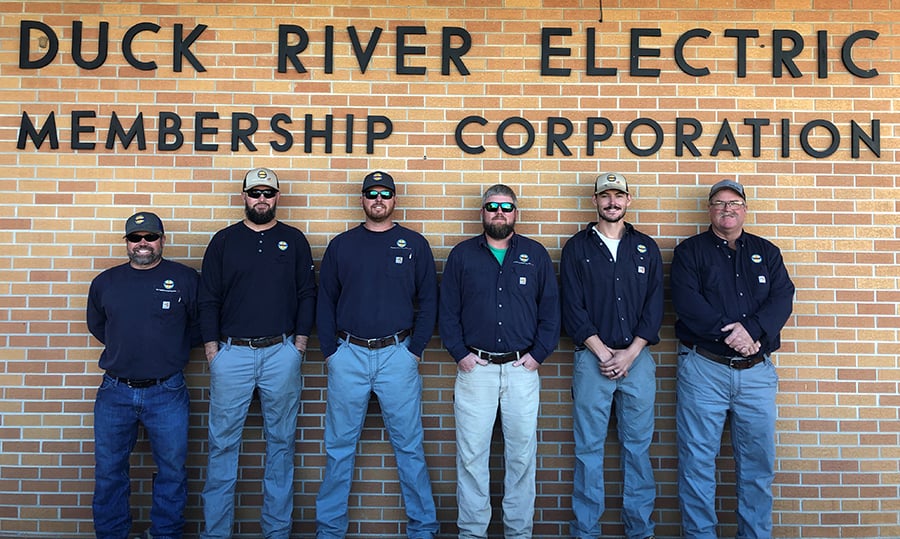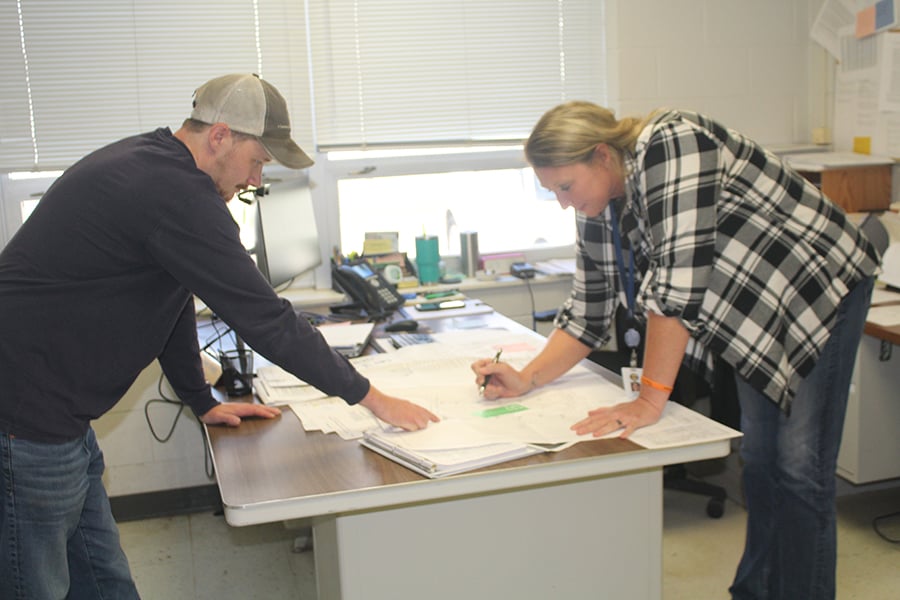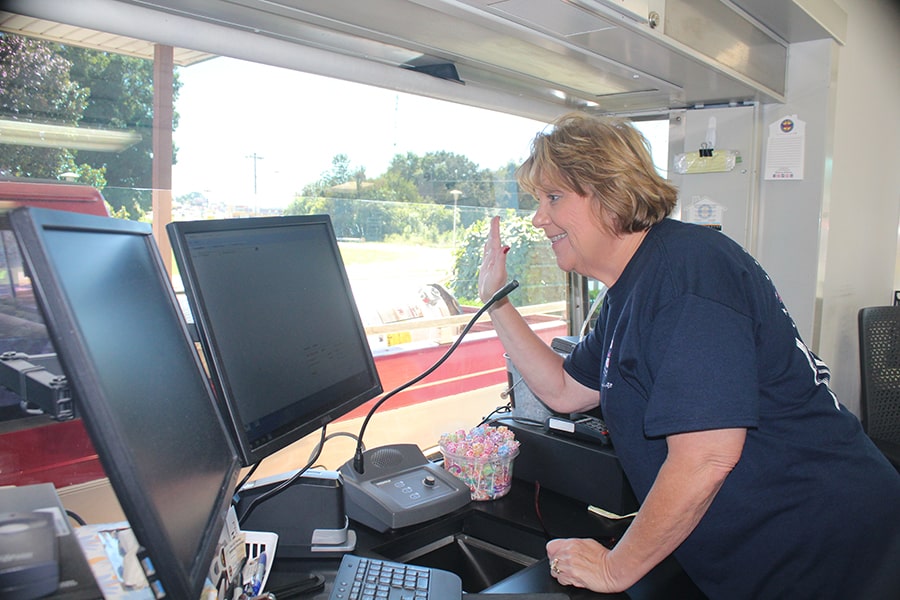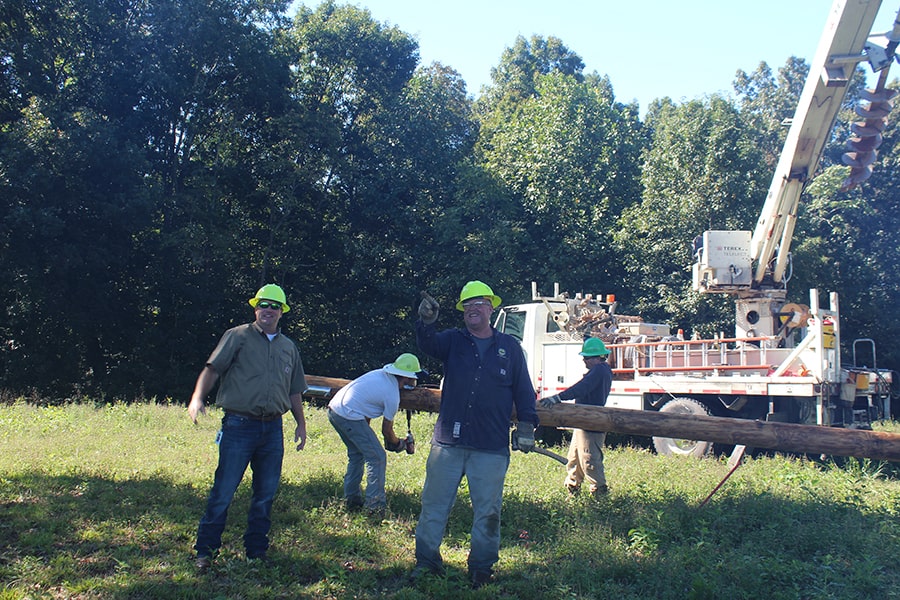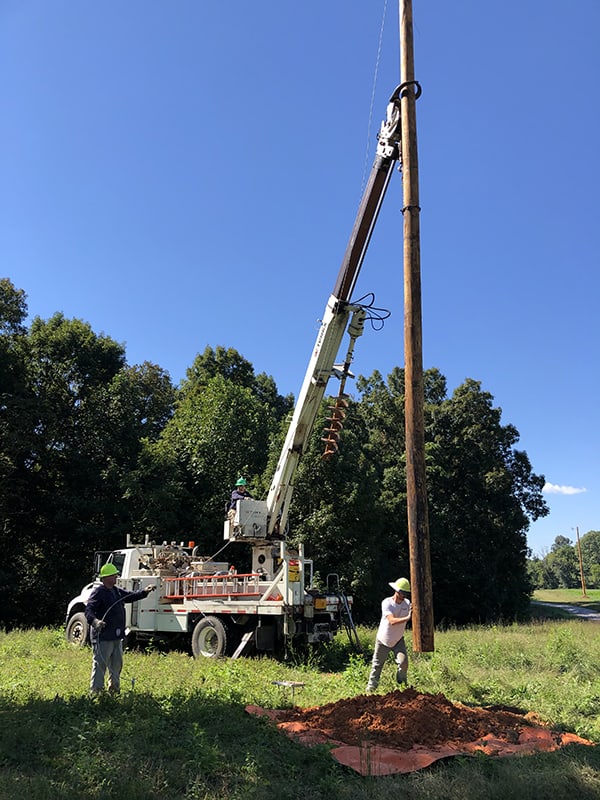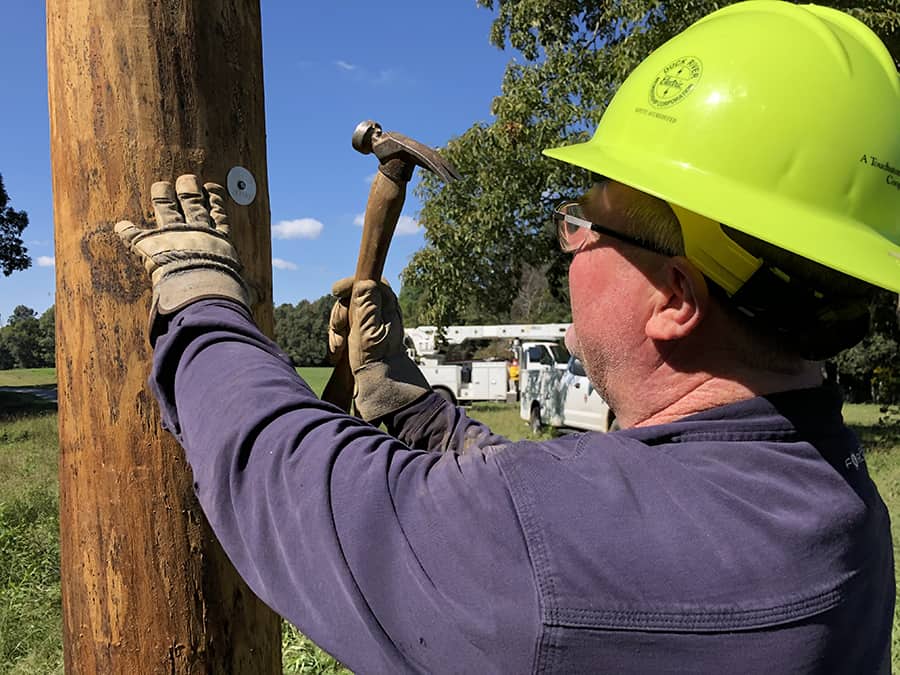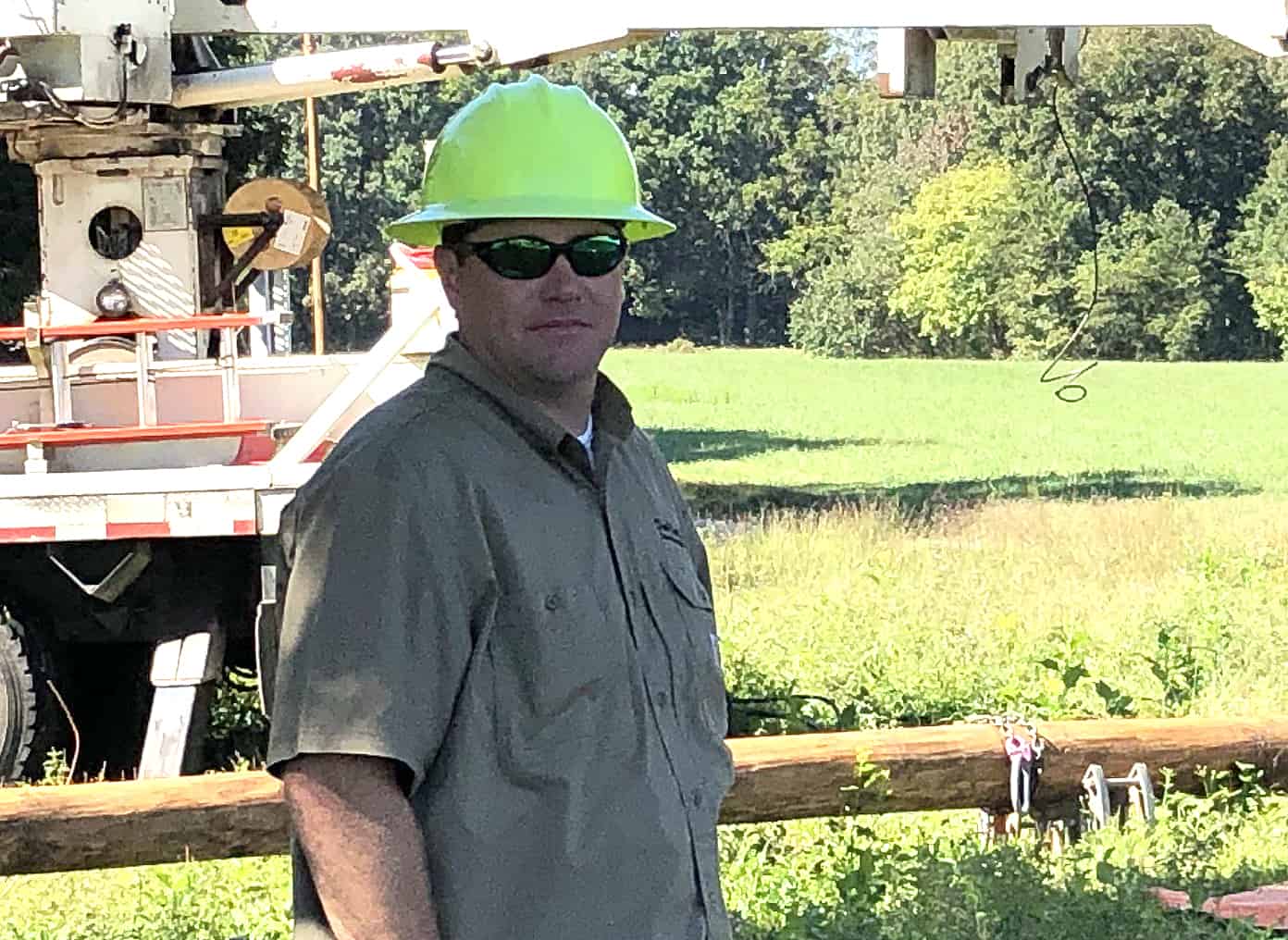From picturesque farmland at the base of the Cumberland Plateau to Tims Ford Lake and Keith Springs Mountain, the landscape of Franklin County, TN, located in the southeastern part of Duck River Electric’s service area, boasts of outdoor living and recreation. Generations of farmers, lakefront homeowners and everyone in between call this area home, and the team at Decherd’s district office is proud to be a part of the community.
Each district office of DREMC performs similar business functions for the cooperative: electric engineering, construction, and maintenance along with member care and service. This story begins a series entitled “The People Who Power Duck River Electric” and will focus on what makes each district or department a bit unique as they support DREMC’s mission of providing safe and reliable electric service at the lowest possible cost.
DREMC’s Decherd district office was constructed in its current location along Decherd Blvd. in 1963. Duck River Electric Membership Corporation formed in 1936 with much of the service area being acquired through leases and purchases from previous power companies that brought electricity to middle Tennessee 20 years earlier. These companies included the Tennessee Electric Power Company, Tennessee Valley Light and Power Company, Southern Cities Power Company and Public Light and Power Company.
“I grew up in Franklin County,” shares Charlie Jacks, DREMC lineman. “I know the people here, and now I work to make sure they have electric service. They depend on us – on me – and that’s why working at Duck River is important.”
The Franklin County service area encompasses five cities: Decherd, Estill Springs, Huntland, Cowan and the University of the South. The DREMC area office in Sewanee serves the latter two, which will be featured in a future edition. The Decherd district serves approximately 11,850 members in Decherd, Estill Springs and Huntland communities.
“I began working at Duck River Electric in 2002 in the engineering department, and I vividly remember my first day as the district manager in Decherd,” says Patrick Hannah, district manager. “It was February 28, 2011, and it was the day a tornado ripped through parts of Franklin County and the Decherd area, leaving many in the dark.” Hannah says the tornado event was his official ‘breaking in’ as a district manager.
On April 27, just over a month later, a catastrophic tornado struck the area leaving everyone without power because TVA transmission lines delivering power to DREMC were severely damaged. “This was perhaps the most challenging day I’ve had since becoming the district manager here,” he recalls. “We worked countless hours and were aided with power restoration by electric crews from other DREMC offices plus electric contractors. I remember having the eeriest feeling driving down the street in complete darkness – no streetlights, no lights in homes or businesses – until the power was restored.”
“The dedication of our Decherd team was evident during those tornado events,” Hannah says. “It was obvious then that this team brought their ‘A Game’ when restoring power, and I continue to see that type of dedication every day as they care for the members. When I think our team here doesn’t have another gear to go, they find it and keep going.”
The Nissan Engine Plant in Decherd, Thompson Appalachian Hardwoods in Huntland, and the University of Tennessee Space Institute in Estill Springs are three of the largest commercial members in the Decherd district. Like with all members, having a dependable power supply is vital.



